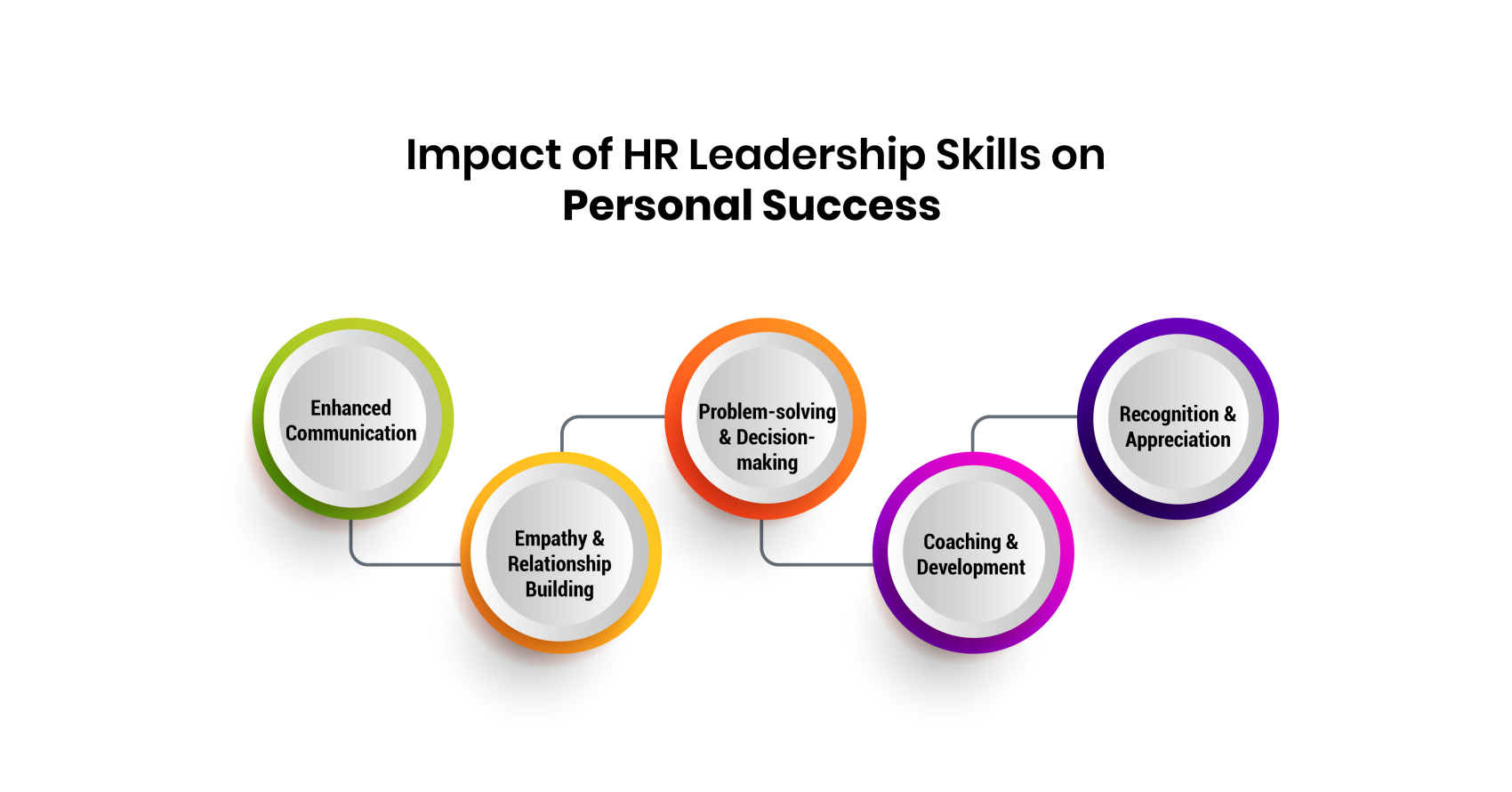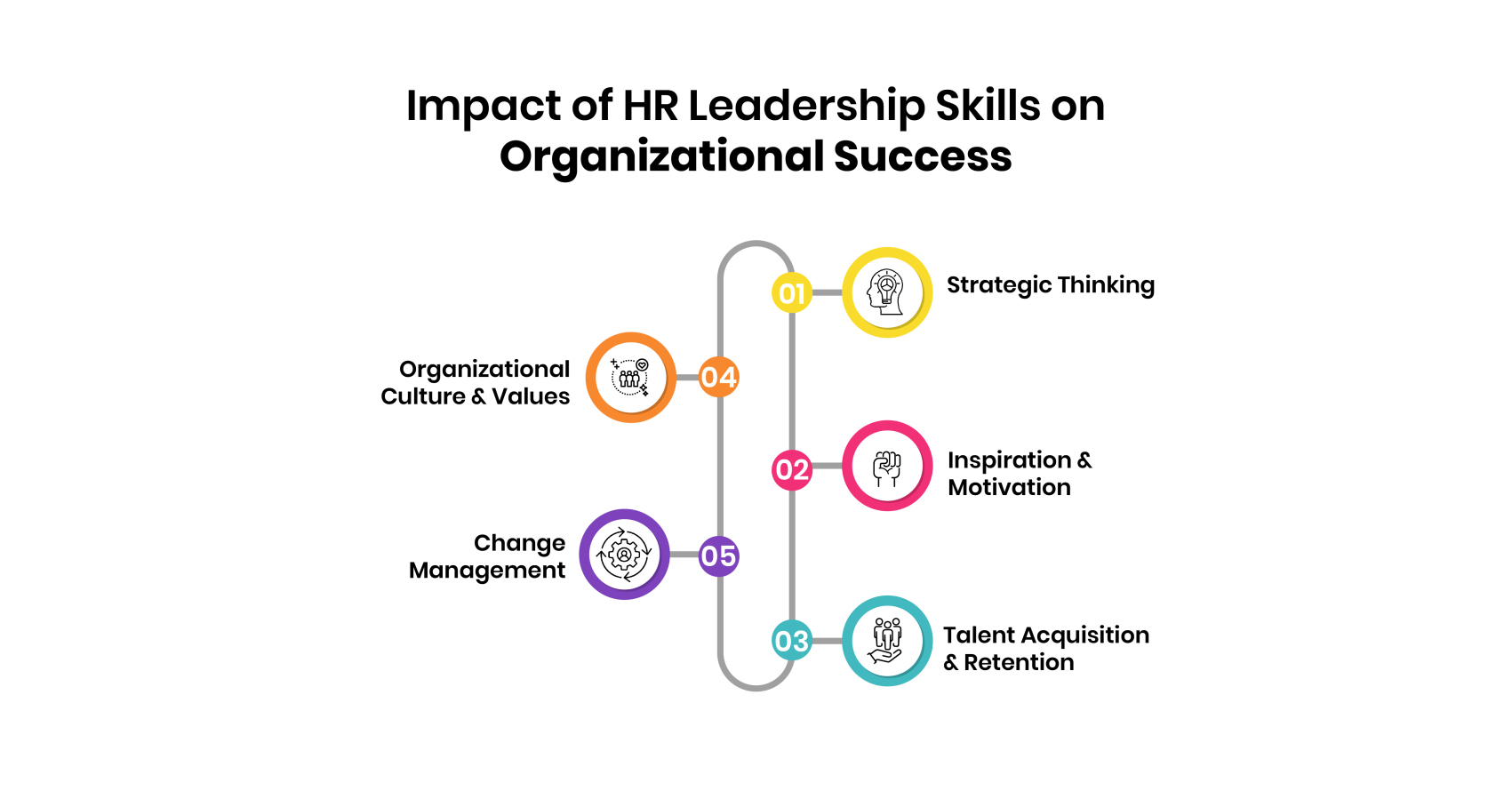Leadership is a critical component of human resource management (HRM). It plays a vital role in shaping organizational success. HR leaders are responsible for managing and developing talent, creating a positive work culture, and driving strategic initiatives that align with the organization's goals. In today's fast-paced and dynamic business environment, effective leadership in HRM is more important than ever. This blog explores the role of leadership in HRM and its impact on both personal and organizational success.
From understanding the key leadership skills needed in HRM to exploring how HR leaders can cultivate a culture of leadership within their organizations, this blog will provide valuable insights and strategies for HR professionals looking to enhance their leadership capabilities.
Leadership in human resource management (HRM) goes beyond traditional management roles. It involves a unique set of skills that are crucial for guiding and managing a diverse workforce. HR leadership skills encompass a wide range of abilities that allow HR professionals to effectively manage people and processes within an organization.
HR leadership skills include communication, empathy, problem-solving, and strategic thinking. These skills enable HR leaders to understand employees' needs and align them with the organization's goals.
Effective communication skills help HR leaders convey information clearly and build strong relationships with employees. Empathy allows them to understand the feelings and perspectives of others, fostering a positive work environment. Problem-solving skills enable HR leaders to address issues efficiently, while strategic thinking helps them plan and implement long-term HR strategies.
The role of HR leadership skills is to drive organizational success through effective people management. HR leaders play a crucial role in attracting, developing, and retaining talent. They are responsible for creating and implementing HR policies that promote a positive work culture and support the organization's goals. HR leaders also act as advisors to senior management, providing insights on HR matters that impact the organization's overall success.
HR leadership skills are important because they directly impact employee engagement, productivity, and organizational performance. Effective HR leadership can improve employee morale, leading to higher retention rates and lower turnover costs.
Additionally, strong HR leadership can help organizations adapt to change and navigate challenges in an ever-evolving business environment. By investing in HR leadership skills, organizations can build a strong and resilient workforce that drives sustainable growth.
HR leadership skills are essential for managing and leading a diverse workforce. These skills enable HR professionals to effectively communicate, empathise, solve problems, and think strategically. By leveraging these skills, HR leaders can drive organizational success and create a positive work culture that fosters employee engagement and productivity.
Leadership skills in human resource management (HRM) play a pivotal role in shaping both personal and organizational success. HR leaders must possess a unique set of skills that go beyond traditional management roles to effectively manage and inspire a diverse workforce.


Effective HR leadership skills are crucial for both personal and organizational success. HR leaders can master skills like communication, empathy, problem-solving, and strategic thinking. This can significantly improve employee engagement, productivity, and satisfaction. This, in turn, leads to enhanced organizational performance and success.
Leadership development is a critical aspect of human resource management (HRM) that focuses on nurturing and enhancing the leadership skills of HR professionals. It is essential for HR leaders to continually develop their skills to effectively manage and lead a diverse workforce.
Leadership development programs provide HR professionals with opportunities for continuous learning and growth. HR leaders can take part in workshops, seminars, and training programs. This can improve their skills in areas such as communication, conflict resolution, and strategic thinking. This continuous development benefits the individual and strengthens the HR department.
Leadership development programs focus on enhancing key leadership skills that are crucial for HR professionals. These skills include communication, empathy, problem-solving, and strategic thinking. By honing these skills, HR leaders can effectively manage and lead their teams, leading to improved employee engagement and organizational success.
Effective leadership development programs also play a vital role in succession planning. HR professionals can identify and develop future leaders within the organization and ensure a smooth transition of leadership roles. This proactive approach helps in maintaining organizational stability and continuity.
Leadership development in HRM also contributes to building a stronger and more resilient workforce. Investment in the development of their employees and organizations can create a culture of continuous learning and improvement. This, in turn, leads to higher employee morale, increased job satisfaction, and improved organizational performance.
HR leaders can cultivate a culture of leadership within their organizations. In such organizations, employees feel empowered to lead and contribute to their success.
Leadership stands as a cornerstone of human resource management (HRM). It significantly impacts personal and organizational success. HR leaders play a pivotal role in managing talent, fostering a positive work culture, and driving strategic initiatives. Effective leadership, characterized by strong communication, empathy, problem-solving, and strategic thinking, enhances employee engagement, productivity, and satisfaction. This further leads to improved organizational performance.
To cultivate a culture of leadership, HR leaders should lead by example, provide development opportunities, encourage collaboration, recognize leadership behaviors, and promote a growth mindset. This proactive approach fosters a workforce that is empowered to lead and contribute to organizational success.
It is evident that investing in hr development is essential for HR professionals seeking to drive positive change and growth within their organizations. By honing their leadership skills and fostering a culture of leadership, HR leaders can propel their organizations towards sustainable success.
This website uses cookies to enhance website functionalities and improve your online experience. By browsing this website, you agree to the use of cookies as outlined in our privacy policy .